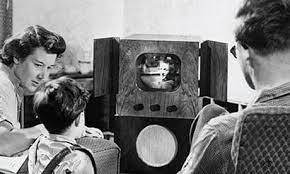Television has had a profound effect on family life, but the effects on children are sometimes more complicated. Many parents and children struggle to understand the value of television and how it has impacted their lives and activities. Here we look at some research that shows how TV has impacted the lives of many children. Read on to learn how TV has changed family life.
Television shows have changed the way families interact. After World War II, television programmes became increasingly diverse, reflecting changing social attitudes. In the 1950s, sitcoms tended to ignore current events and focus on white, suburban middle-class families. The stress of the Vietnam War and the Cuban Missile Crisis brought a new sense of social consciousness to the American public. Television producers began to reflect changing attitudes about women’s roles and the increasing number of single parents and divorced people. Sitcom families began to reflect a diverse range of family dynamics, including single fathers and non-nuclear families.
Before television, children had periods of unstructured free time. Today, children’s days are full of structured activities. Parents were expected to fill that empty space with something new and exciting. In the pre-television era, parents relied on parent-directed childcare strategies to ensure their children were developing at the right pace and learning by themselves. These methods often resulted in more discipline and less time for learning. Fortunately, the emergence of television has changed all of this. If you need advice on TV aerial installation Gloucester, visit Steve Unett Aerials
While television programmes have shifted away from traditional family dramas to more exciting characters, many viewers still crave individuality. According to a consulting curator at the Museum of Broadcast Communications, television continues to have a profound effect on family life. It is no wonder that it has become one of the most popular forms of entertainment for families. In many ways, television is more powerful than ever before. With its wide range of programmes, television has become an indispensable part of everyday life with whole channels dedicated to children’s viewing.
Today, television shows are a reflection of our society’s choice of family. While traditional nuclear families still dominate the lives of children and parents, many television programmes showcase other types of family. These shows run parallel to the mainstream and accepted types of families. Modern family shows, like Friends, have changed the definition of a nuclear family. They feature families with mixed sex, interracial families, and even gay families. With all of these changes, television is transforming the way families live.








